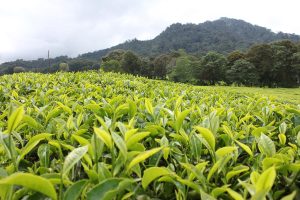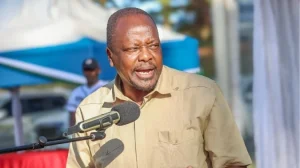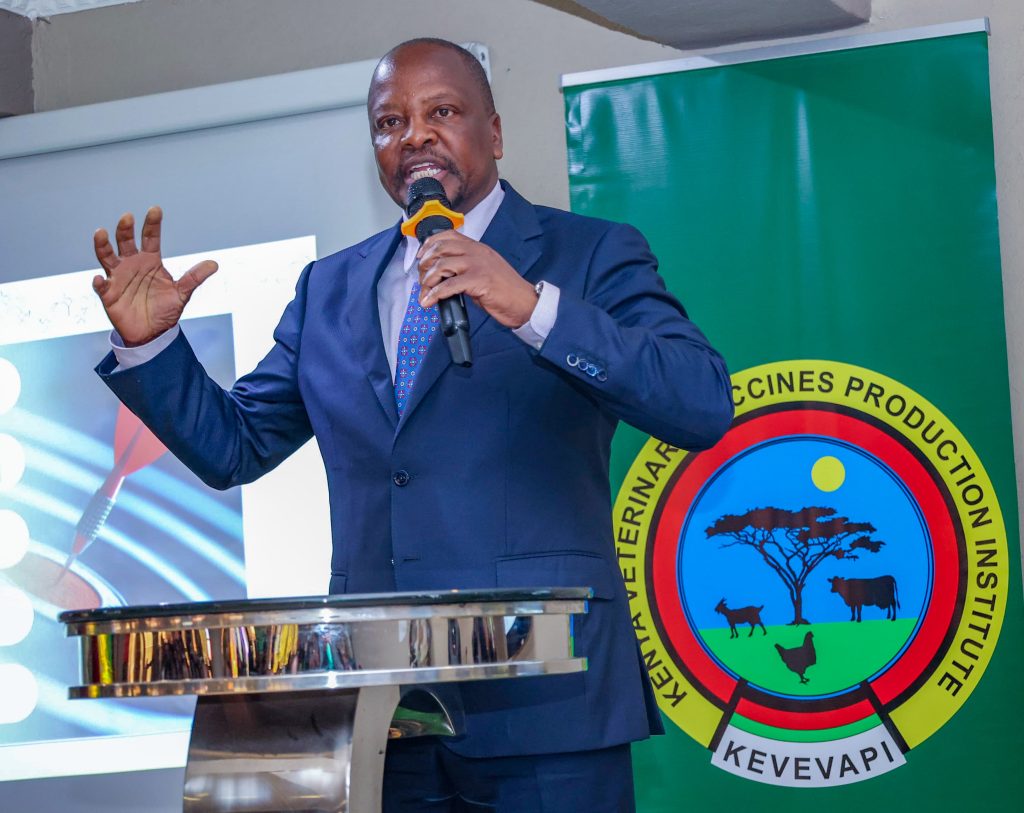
Agriculture Cabinet Secretary Sen.Mutahi Kagwe
Agriculture CS,Mutahi Kagwe Unveils Sh10.8 Billion KEVEVAPI Strategic Plan Aimed at Safeguarding Livestock Health and Strengthen Food Security;
Agriculture Cabinet Secretary Sen.Mutahi Kagwe has unveiled the Sh10.8 billion Kenya Veterinary Vaccines Production Institute (KEVEVAPI) Strategic Plan that will boost livestock productivity and enhance food security through access to affordable and high-quality veterinary vaccines for farmers in Kenya and the region.
 Aligned with the Government’s Bottom-Up Economic Transformation Agenda (BETA), the five-year Strategic Plan (2023–2027) will guide the Institute toward increasing livestock vaccines production through innovation, infrastructure modernization, and enhanced vaccine market access.
Aligned with the Government’s Bottom-Up Economic Transformation Agenda (BETA), the five-year Strategic Plan (2023–2027) will guide the Institute toward increasing livestock vaccines production through innovation, infrastructure modernization, and enhanced vaccine market access.
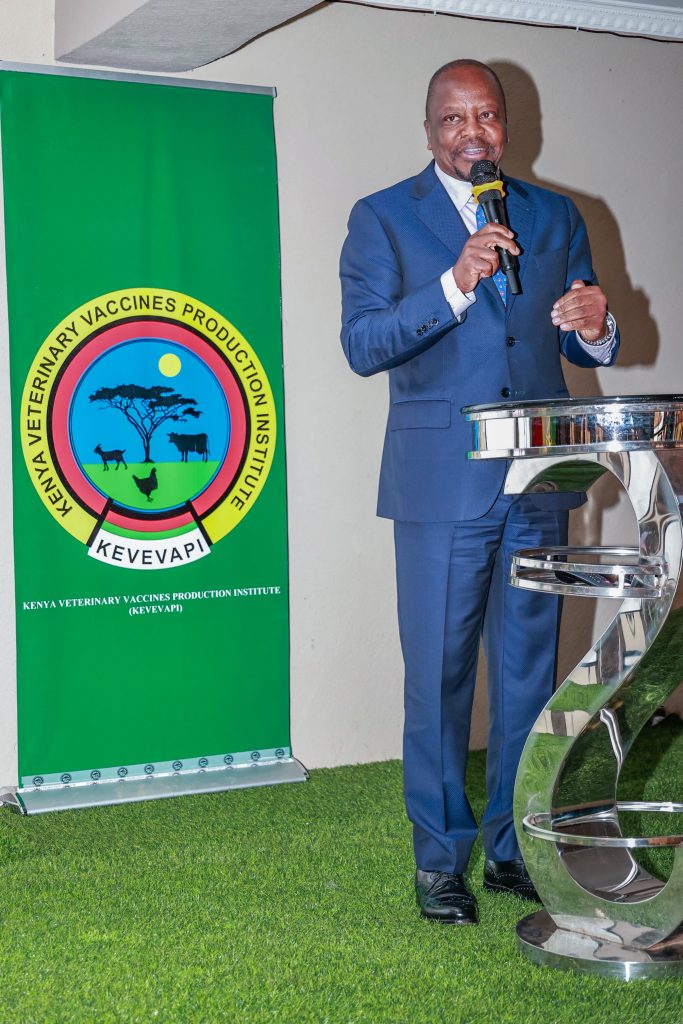
Speaking during the launch of the Strategic Plan in Nyeri, CS Mutahi Kagwe emphasized KEVEVAPI’s critical role in national development. He lauded the institute’s leadership for overseeing the formation of the Strategic Plan, urging them to ensure full implementation for the success of the livestock sector.
“Healthy livestock means healthy livelihoods.This Strategic Plan reflects the Government’s unwavering commitment to protecting our farmers, promoting food security, and expanding Kenya’s presence in global animal health markets,” said CS Kagwe.
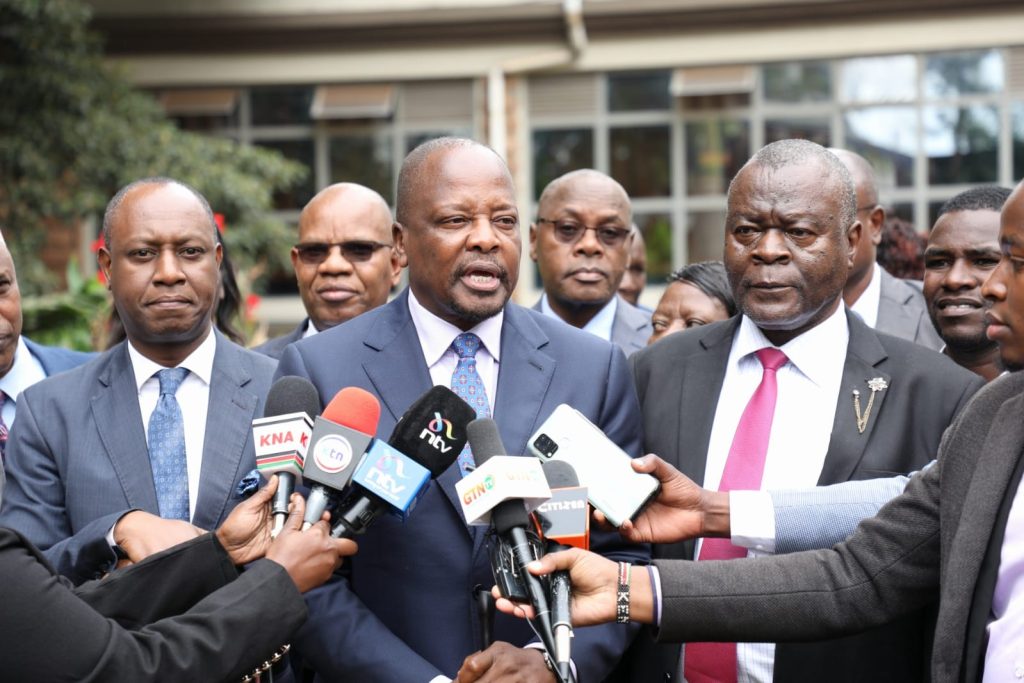 “The modernization of KEVEVAPI and increased vaccine production will ensure the safety of our livestock and public health, boost exports, and increase productivity among our farmers in rural communities.
“The modernization of KEVEVAPI and increased vaccine production will ensure the safety of our livestock and public health, boost exports, and increase productivity among our farmers in rural communities.
It will also ensure the safety of the vaccines being administered on our livestock which is integral to the success of this industry. The Ministry is committed to work with KEVEVAPI to ensure these ambitious targets are achieved,” he added.
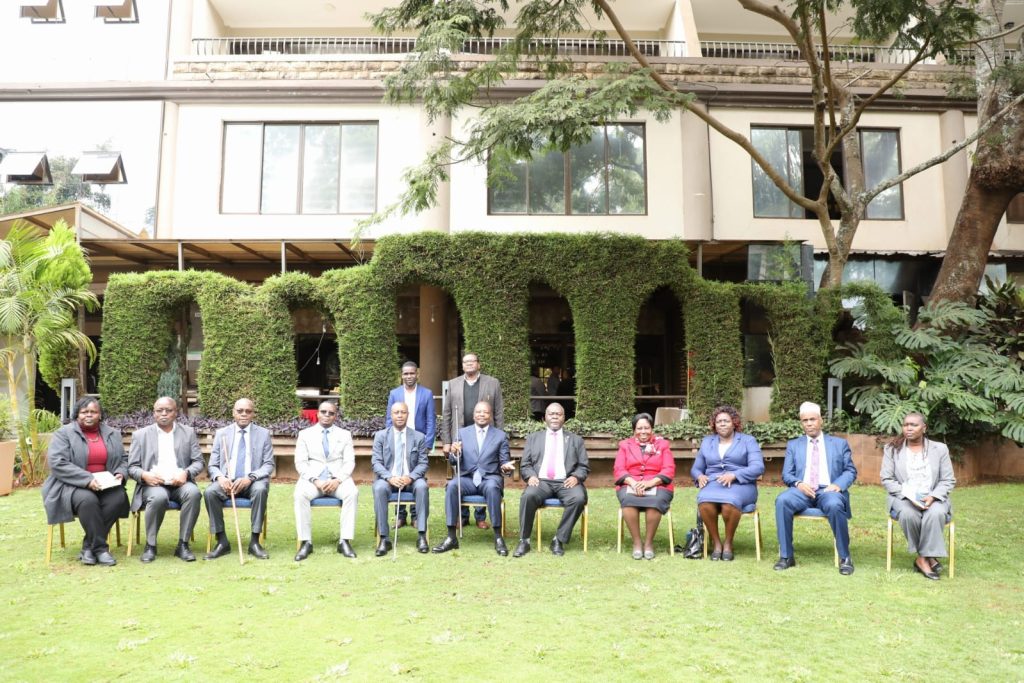 Addressing misconceptions around livestock vaccination, CS Kagwe clarified:
Addressing misconceptions around livestock vaccination, CS Kagwe clarified:
“There was a lot of propaganda on livestock vaccination – it’s KEVEVAPI and not Bill Gates,” he stated firmly.
“As long as there are animals, it will always be necessary to have vaccines,” he noted, reinforcing the
essential nature of continued vaccine production.
“KEVEVAPI is very important for us. Kenya is a vaccine producer, a lot of calls are coming in from all over the world, the money will come from the business of selling vaccines globally,” he added, highlighting the institute’s potential as an economic driver.
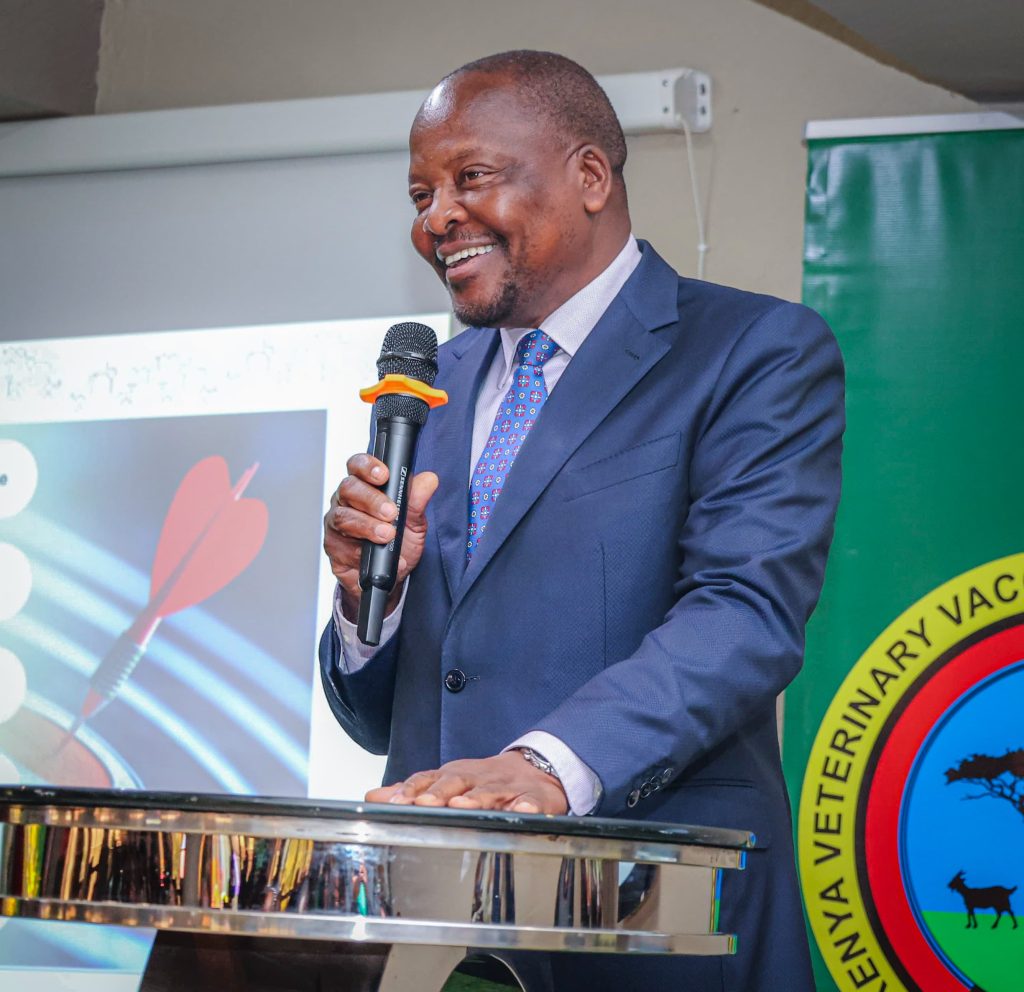 The livestock sector remains a key pillar of Kenya’s economic growth with a turnover of Sh235 billion annually, contributing approximately 12% of the national GDP and serving as a critical source of income and nutrition for millions of households.
The livestock sector remains a key pillar of Kenya’s economic growth with a turnover of Sh235 billion annually, contributing approximately 12% of the national GDP and serving as a critical source of income and nutrition for millions of households.
However, recurring animal diseases continue to threaten productivity, trade, and food security—making the Strategic Plan a vital framework to ensure the country is always prepared for effective disease management.
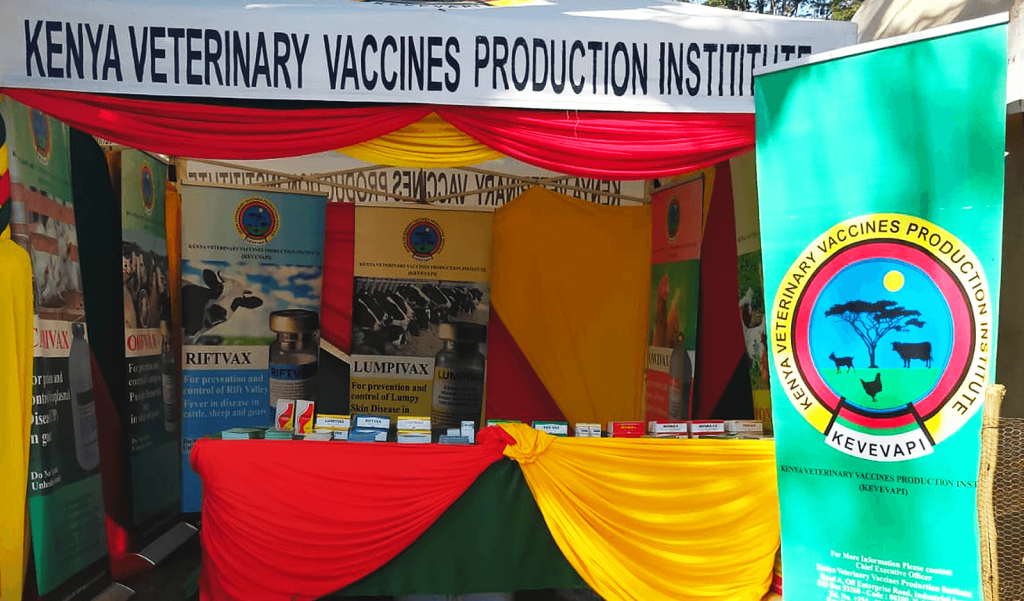 The modernization of KEVEVAPI, anchored in the Medium Term Plan (2023–2027), targets doubling annual vaccine production from 35 million to 70 million doses.
The modernization of KEVEVAPI, anchored in the Medium Term Plan (2023–2027), targets doubling annual vaccine production from 35 million to 70 million doses.
This will support the fight against major livestock diseases such as Foot and Mouth Disease (FMD), Lumpy Skin Disease, and Peste des Petits Ruminants (PPR), which currently result in major livestock losses and economic disruption.
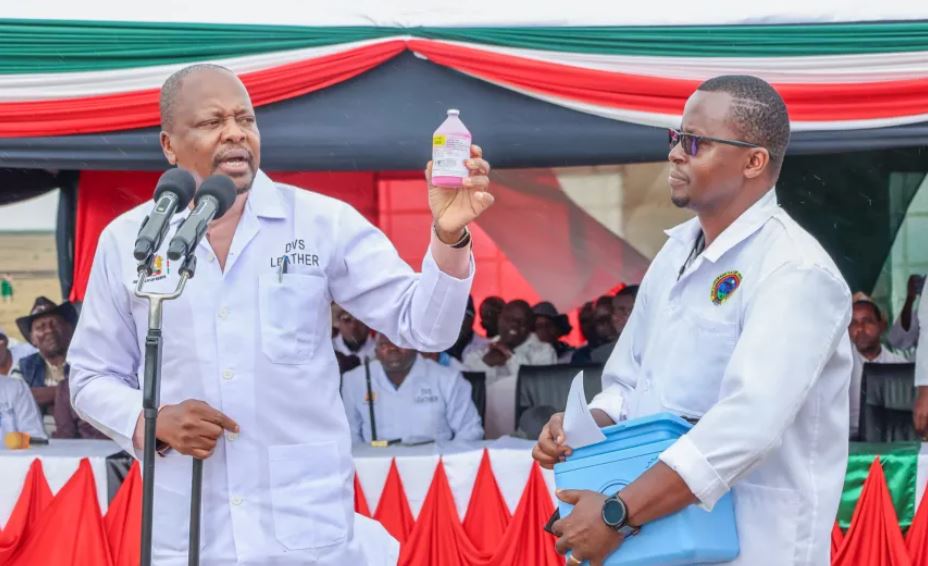 Under its previous 2018–2022 Strategic Plan, KEVEVAPI produced 177.2 million doses of vaccines and exported approximately 11.3 million doses of assorted vaccines to external markets.
Under its previous 2018–2022 Strategic Plan, KEVEVAPI produced 177.2 million doses of vaccines and exported approximately 11.3 million doses of assorted vaccines to external markets.
Looking ahead, KEVEVAPI plans to upgrade its Embakasi and Kabete facilities to comply with global Good Manufacturing Practices (GMP) standards.
 This will not only boost production capacity but also expand regional market presence by exporting vaccines to countries including Rwanda, DRC, Uganda, Burundi, Tanzania, Djibouti, and Mali.
This will not only boost production capacity but also expand regional market presence by exporting vaccines to countries including Rwanda, DRC, Uganda, Burundi, Tanzania, Djibouti, and Mali.

